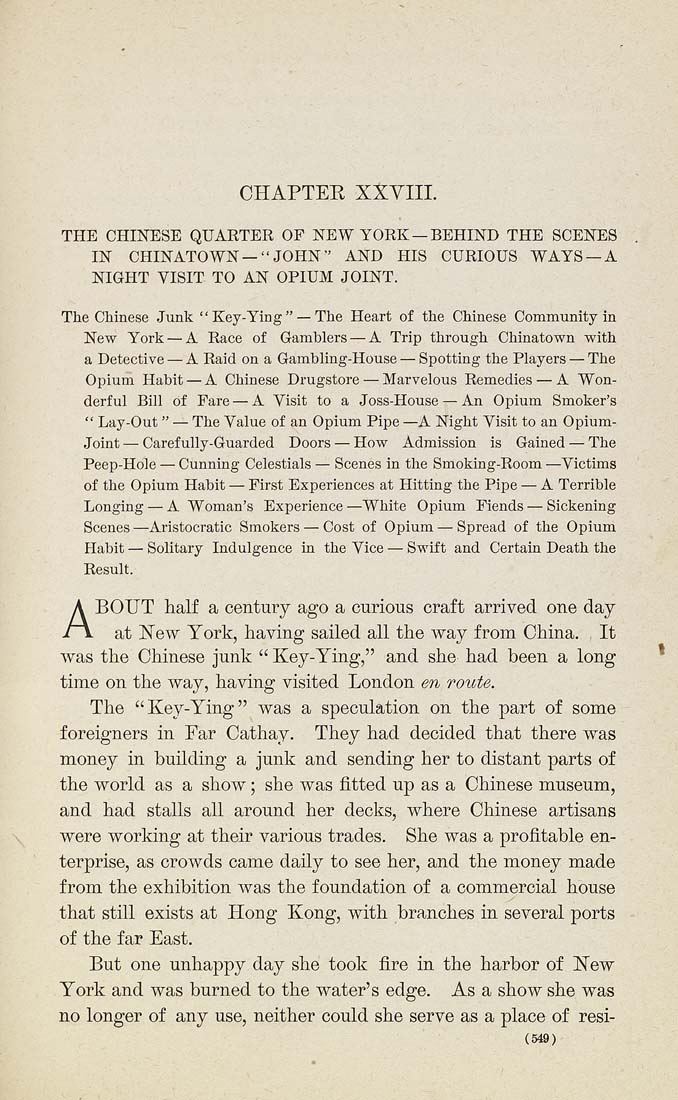CHAPTEE XXVIII.
THE CHINESE QUARTER OF NEW YORK —BEHIND THE SCENES
IN CHINATOWN—"JOHN" AND HIS CURIOUS WAYS —A
NIGHT VISIT TO AN OPIUM JOINT.
The Chinese Junk "Key-Ying" — The Heart of the Chinese Community in
New York — A Race of Gamblers — A Trip through Chinato-wn -with
a Detective — A Raid on a Gambling-House — Spotting the Players — The
Opium Habit — A Chinese Drugstore — Marvelous Remedies — A Won¬
derful Bill of Fare — A Visit to a Joss-House — An Opium Smoker's
" Lay .Out " — The Value of an Opium Pipe —A Night Visit to an Opium-
Joint — Carefully-Guarded Doors — How Admission is Gained — The
Peep-Hole — Cunning Celestials — Scenes in the Smoking-Room —Victims
of the Opium Habit — First Experiences at Hitting the Pipe — A Terrible
Longing — A Woman's Experience —White Opium Fiends — Sickening
Scenes —Aristocratic Smokers — Cost of Opium — Spread of the Opium
Habit — Solitary Indulgence in the Vice — Swift and Certain Death the
Result.
ABOUT half a century ago a curious craft arrived one day
at New York, having sailed all the way from China. It
was the Chinese junk " Key-Ying," and she had been a long
time on the way, having visited London en route.
The "Key-Ying" was a speculation on the part of some
foreigners in Far Cathay. They had decided that there was
money in building a junk and sending her to distant parts of
the world as a show; she was fltted np as a Chinese museum,
and had stalls all around her decks, where Chinese artisans
were working at their various trades. She Y'as a profitable en¬
terprise, as crowds came daily to see her, and the money made
from the exhibition was the foundation of a commercial house
that still exists at Hong Kong, Y'ith branches in several ports
of the far East.
But one unhappy day she took fire in the harbor of New
York and was burned to the water's edge. As a show she was
no longer of any use, neither could she serve as a place of resi-
(549)
|








